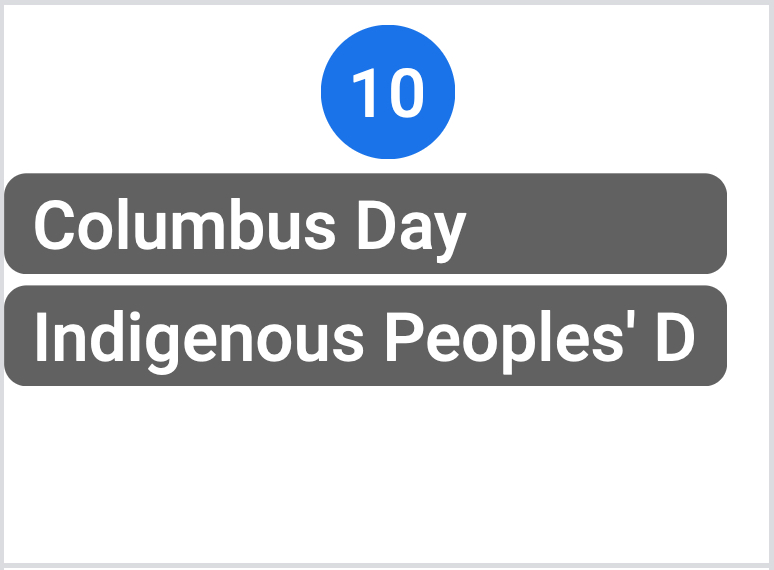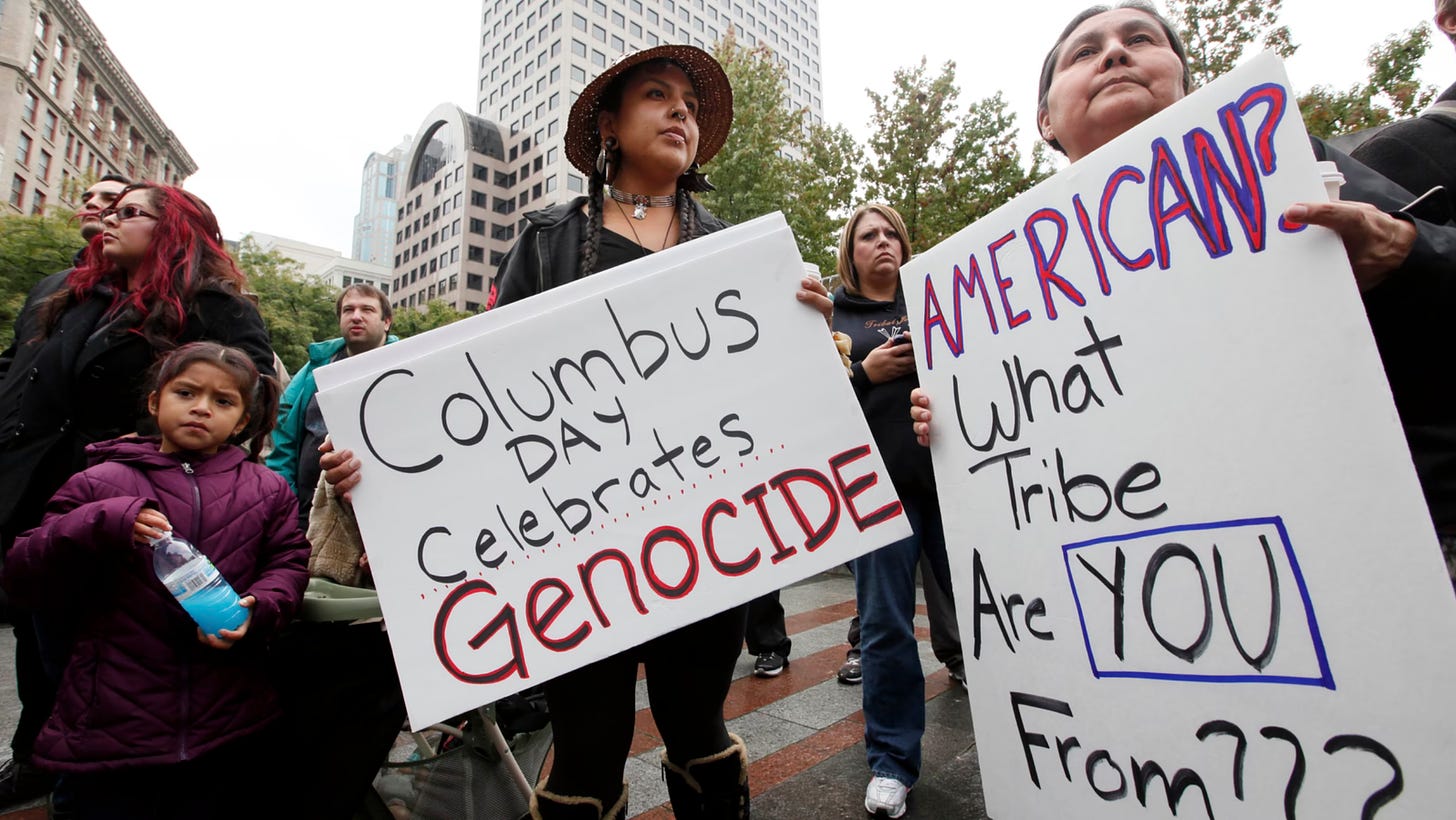Something worth celebrating
Columbus Day or Indigenous People's Day? — How federal holidays don't make sense from a systemic perspective
It’s the second Monday in October and some Americans are celebrating Columbus Day while others celebrate Indigenous People’s Day — two holidays directly in conflict with one other. It’s a fitting picture of where we are, of the intense polarization between us, of the culture wars being waged in the US and abroad.
This battle can feel so real: in a sense we’re fighting over the very meaning of our lives, over the soul of America, over the values we hold most dear. Will we celebrate a person who was pivotal in establishing the United States in its current form, or commemorate the people he killed in his conquest? It feels like a question of our very identity. Who are we? What do we stand for?
But in framing the conflict this way, we’re shortcutting the larger process. We won’t find a shared soul life by establishing federal holidays, because “establishing” in this case just means “imposing.” What we’re really saying is that we want everyone to celebrate this holiday (and not this other one); to have these values, these beliefs (and not these others). But why are we telling people what to believe?
We impose our beliefs on others for the sake of “unity,” because we think everyone in a country needs to share the same basic values. For instance, we blithely assume all children should learn the same thing at school (though perhaps we’re starting to feel a little queasy about the word “assimilation”) and we lament the fact that we no longer have just three television channels (now anyone can get their news from anywhere and have their own version of the truth!). And so we also assume we should share the same holidays. How else would we coordinate when businesses will close, when we’ll have parades and fireworks and all the rest? But does this actually make sense?
The word “holidays” comes from the religious term “holy days” — a time when people would indeed step out of their normal course of life and turn with reverence towards that which they found most meaningful. Such holy days should be celebrated with other people in shared festivals — but do we really need everyone to do this? And should the government tell us what days we should celebrate, and what exactly is worthy of our reverence?
For example, should Israeli Jews (the majority in that country) establish their country’s holidays according to their own religion, in effect telling Israeli Muslims and Christians what holy days are worthy of their collective adoration? (And if Israeli Jews think so now, would they still think so if Muslims became the majority and imposed their own holidays on the country?) And does anyone really believe the US government should determine a day when all Americans, including Native Americans, should celebrate the life of Christopher Columbus?
But these are just the most egregious examples. The real question is, Why is the political majority telling minority groups and individuals what cultural values they should celebrate?
The healthy way forward is to separate culture and government entirely, to allow for the fullest diversity of beliefs and make the space for all people — Jews and Muslims, Native Americans and Italian Americans (Columbus Day was started on behalf of Italian Americans who were experiencing heightened discrimination) — to turn towards that which is meaningful for them.
And we can do this. We can have enough cultural understanding to allow different people with different beliefs to celebrate different holidays. Even in the same country, and even in the same workplace. It’s not that difficult. The bigger challenge is, How do we find unity?
We can find it by following this same path. The first step is to allow people to be themselves, in all their radical diversity. The second step, which is harder, is to take an actual interest in those other people, in their beliefs and values, in what moves them. Instead of assuming they’re like us, we can assume they’re different, and we can try to understand those differences in their particularity. In so doing, we can form a concrete understanding of one another. Such understanding can forge a conscious unity in the midst of diversity.
This path shouldn’t be completely foreign to Americans. It is, after all, embodied in the country’s traditional motto: E Pluribus Unum — “Out of the many, one.” It was something that was absolutely essential for allowing the different states (at that time so culturally different from one another that each saw itself as its own nation with its own values and beliefs) to form a federation at all. And it was something the framers of the constitution learned from the Native Americans, the great Iroquois Federation that preceded them.
But it’s hard to do. It’s so much easier just to think that Columbus Day or Indigenous People’s Day should be celebrated, and to believe everyone should think like you. It’s so much harder to think that both could exist, and that that diversity would actually make us stronger because individuals would then be following their own inspiration, their own path.
Which isn’t to promote some form of moral relativism that says every holiday is the same — they’re not. But people have to walk their own path. They can hear the reasons why you walk a different path, and maybe they’ll decide to walk that path too, but they can’t be told what path to walk. When it comes to community, true unity can only be born out of freedom. If we want to live together in peace, we’ll have to learn, in time, to celebrate our differences as much as we celebrate that which we have in common.






This is beautiful article, I know a song called Fire Pond which will soon be released, it speaks to the same question in musical way.